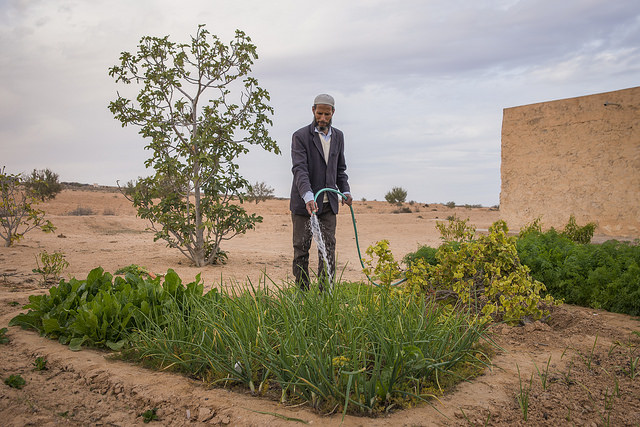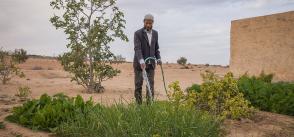
Family Farming in the Near East and North Africa
The Food and Agriculture Organization of the United Nations defines family farming as activity including all family-based agricultural activities that are:
“a means of organising agricultural, forestry, fisheries, pastoral and aquaculture production which is managed and operated by a family and predominantly reliant on family labor, including both women’s and men’s. The family and the farm are linked, co-evolve and combine economic, environmental, social and cultural functions.”
This paper begins by exploring what the term family farming means and how appropriate it is in the NENA region. It will explore more generally the role of farming and agriculture in the broader political economy of the region.
The paper explores the role and impact that farmers have had on the social relations of production in a range of countries and the position that agriculture has played in national and regional development. It will also draw on the responses of farmers to recent upheavals and set out a series of recommendations that might bolster rural development broadly defined including the contributions made to national development by farmers in the region.
Download the working paper via FAO web site:
An Interview with the author of the paper - Professor Ray Bush - can be found here | via Thimar web site.
[Photo by CGIAR Research Program on Dryland Systems | Flickr]







